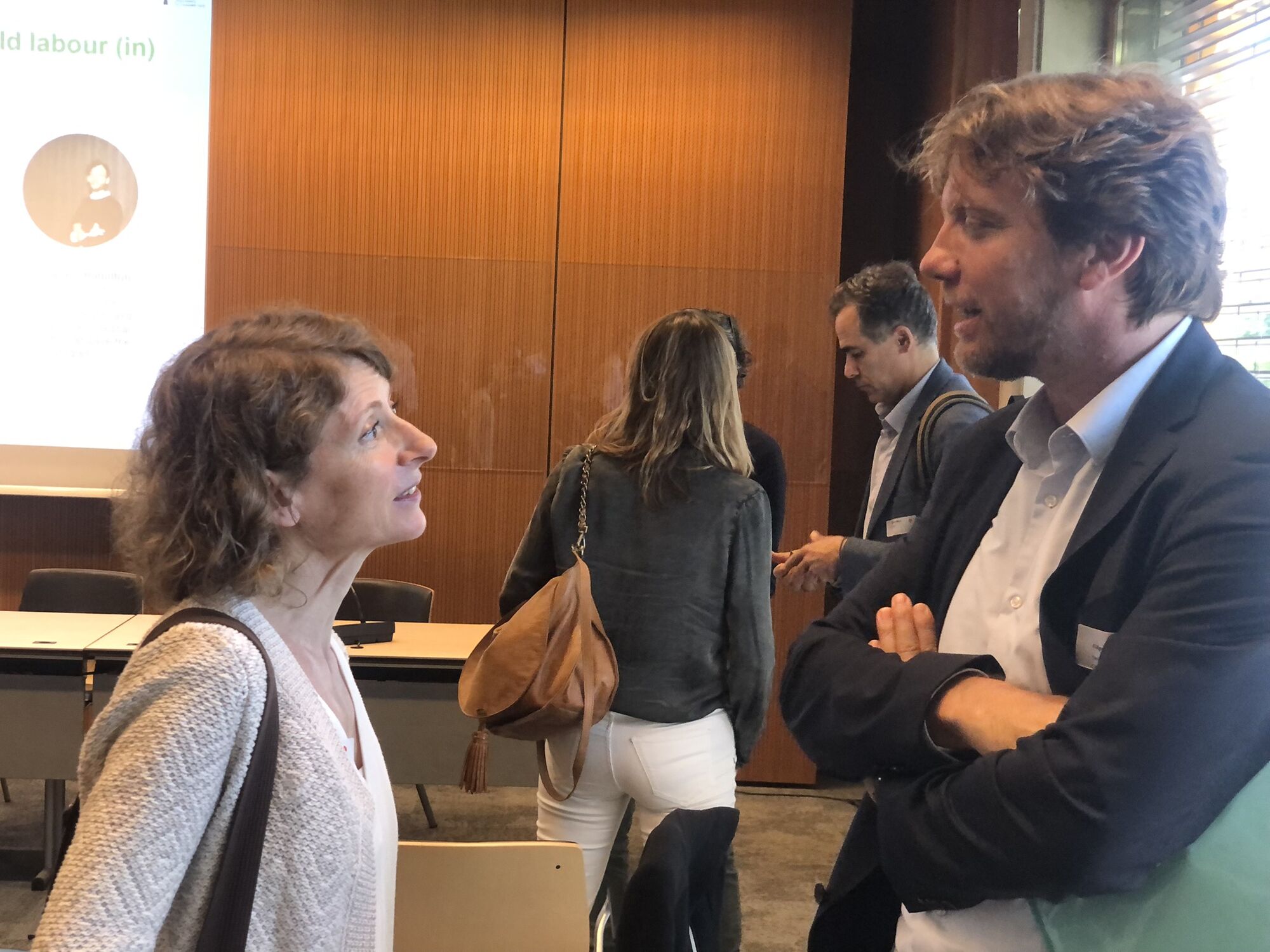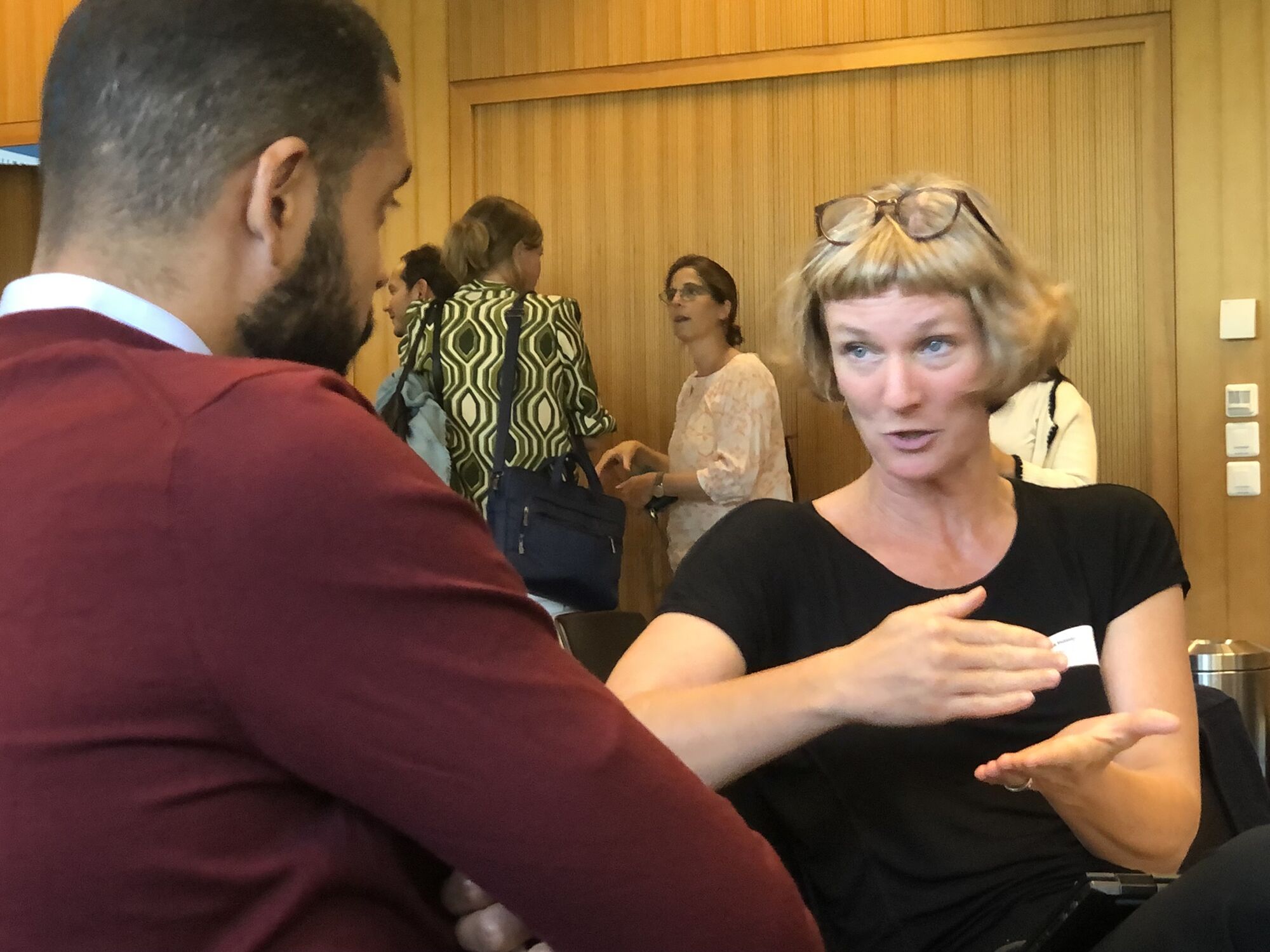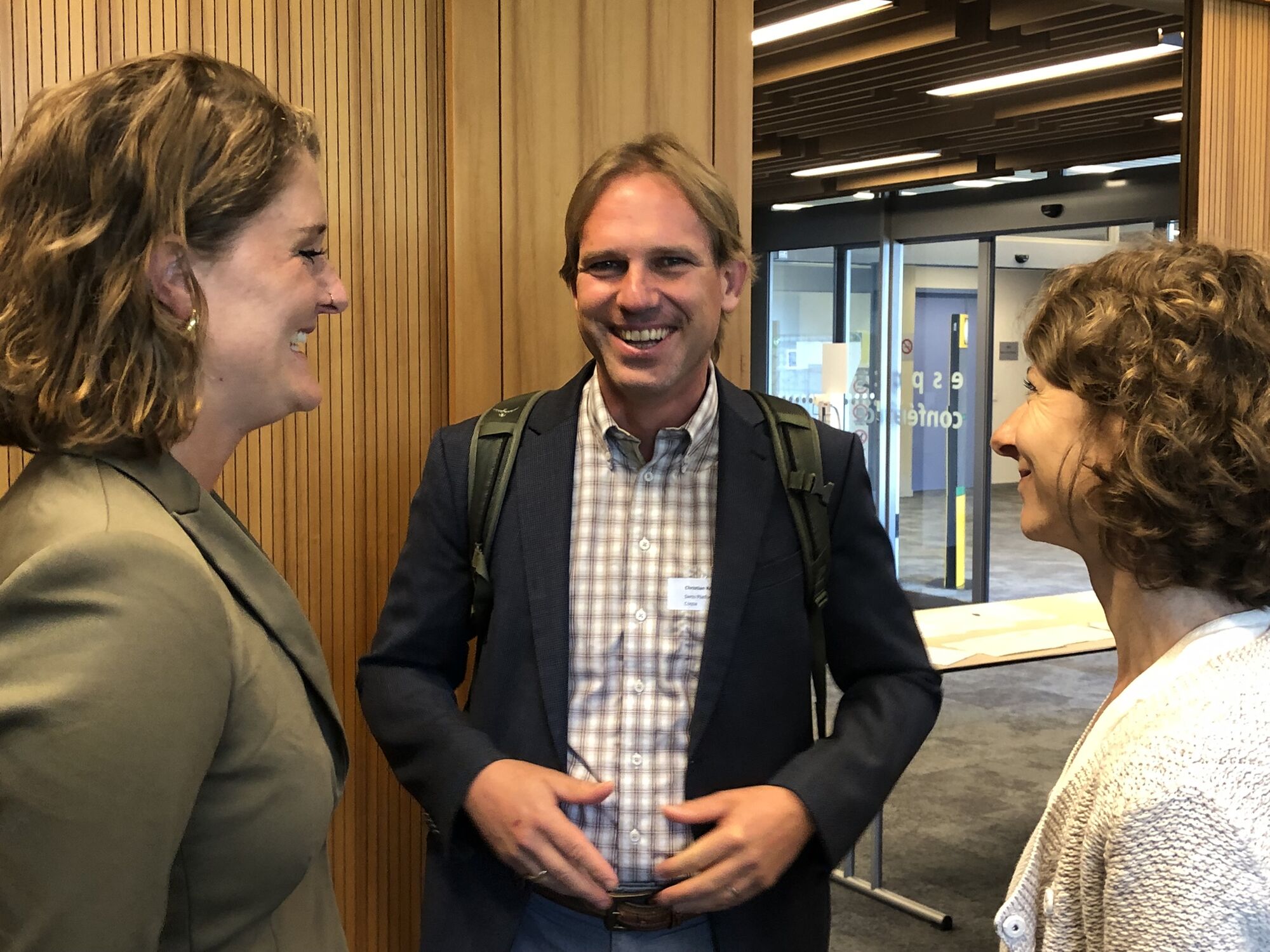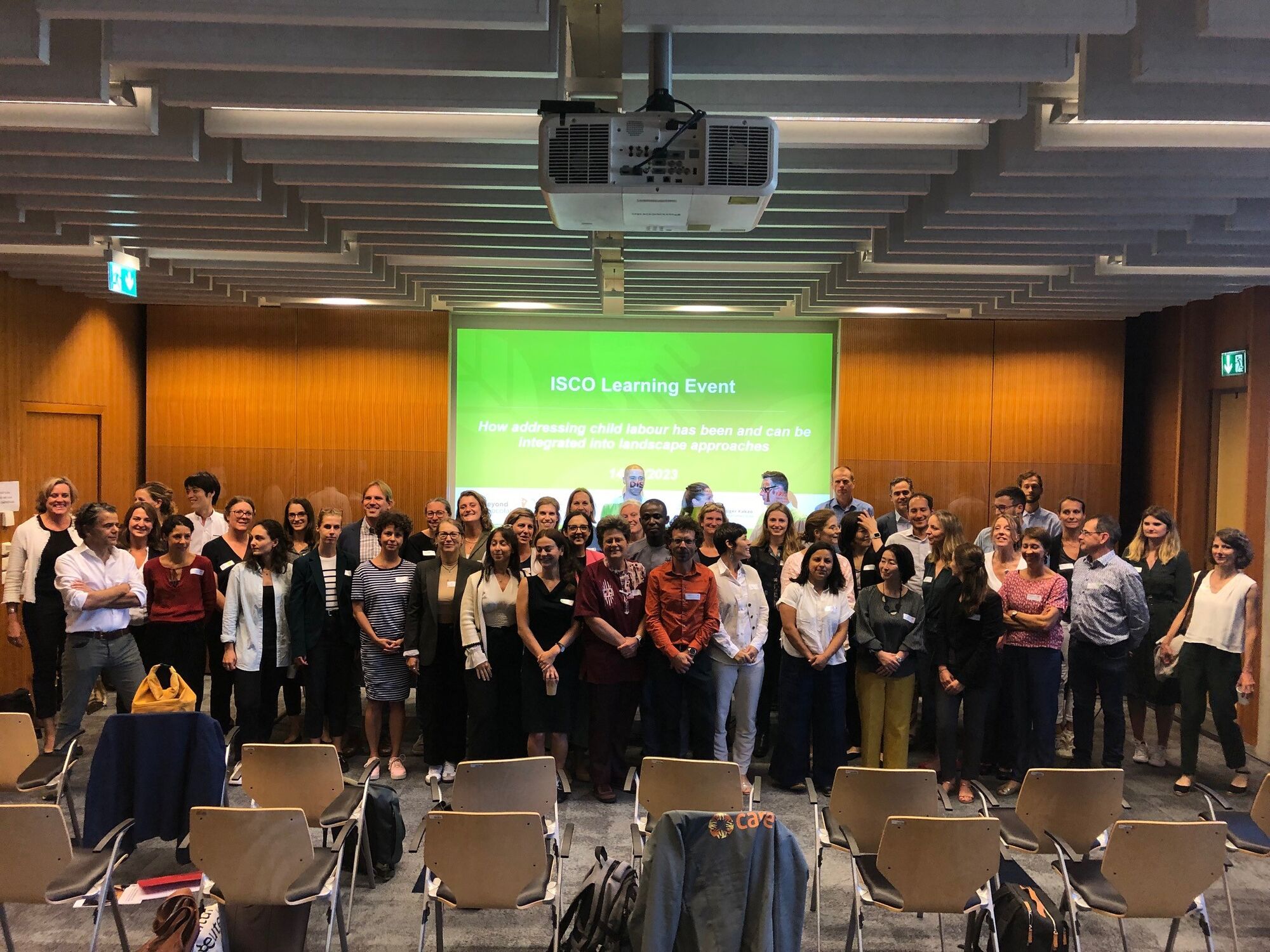"Standing on a cocoa farm, the palpable need to break down silos, adopt a holistic approach, and take collective responsibility is evident and an obvious choice. However, as we move further from the farm, the tendency to revert to silo thinking increases," said Katie Kenrick, Global Lead Workers’ Rights & Stakeholder Inclusion at Earthworm Foundation.
Katie Kenrick was a speaker at the ISCO Working Group on Child Labor event on 14 September in Geneva. The aim of the European Initiatives on Sustainable Cocoa (ISCOs) is to coordinate their activities at both strategic and operational levels to make the best use of synergies and promote transnational knowledge sharing.
How to integrate the child labour dimension
The milestone event in Geneva focused on landscape and area-based approaches and how the child labour dimension can be integrated into them; this has been largely neglected until now. The event drew approximately 60 participants to Geneva, representing the industry, civil society, research, government sectors, and international development organisations.
The primary focus of the event? To delve into the role of landscape approaches in addressing the intricate issue of child labour within the cocoa sector. Keynote discussions revolved around the multifaceted aspects of landscape approaches, which are characterized by their holistic perspective and emphasis on diverse stakeholder involvement. Landscape approaches recognise the interconnectedness of ecological and social objectives and seek to involve all local stakeholders in the landscape.
Three distinct approaches to addressing child labour
The event in Geneva highlighted three distinct approaches to addressing child labour in various landscape contexts.
First, in ecological-focused landscape approaches: These place ecological goals at the forefront but integrate social concerns such as child protection and child labour prevention/remediation, recognizing their interconnectivity.
Second, in area-based programs: These can be implemented by a single entity or a consortium of actors to achieve progress at the area level, often with a specific sector focus.
Third, coordinated action within a "child labour landscape approach": This approach aims for better coordination and collaboration among actors in a defined zone, identifying synergies and joint actions under the leadership of one convening partner.
The four key areas of action
The event's discussions led to the identification of crucial considerations that will guide future collaborative efforts in the fight against child labour.
First, effective collaboration and clear roles in landscape approaches: Well-defined governance structures and clear roles for all stakeholders are essential. Leveraging existing local structures and systems maximizes impact and prevents silo thinking.
Second, informed legislation and integration: There is a pressing need for accompanying measures and detailed guidance within mandatory Human Rights Due Diligence (mHRDD) legislation, especially in the context of landscape approaches.
Third, collaborative funding for comprehensive solutions: Addressing child labour requires a mix of public and private funding, respecting each sector's role and responsibility and ensuring efficient use of resources.
Fourth, data-driven action and adaptive monitoring: A strong foundation of comprehensive, context-specific data is vital for (measuring) effective interventions within landscapes.
The ISCOs remain committed to advancing sustainable cocoa production and child labour eradication. Together, we can create a brighter future for cocoa communities, free from the shadows of the worst forms of child labour.




